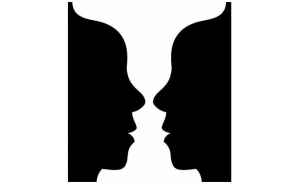Jonathan Berger in Nautilus:
 Contrary to the proverbial tree-falling-in-the forest quandary, a musical note that fails to materialize is at least as present in our brain as it would be had it actually sounded. That’s because neural substrates of imagined sound correlate with those of perceived external sounds. The more vivid the image of what must happen, the more jarring it is when that certainty is subverted.
Contrary to the proverbial tree-falling-in-the forest quandary, a musical note that fails to materialize is at least as present in our brain as it would be had it actually sounded. That’s because neural substrates of imagined sound correlate with those of perceived external sounds. The more vivid the image of what must happen, the more jarring it is when that certainty is subverted.
In the 1970s, psychologists Robert Rescorla and Allan R. Wagner proposed that we learn one thing leads to another through the discrepancy between what we expect will occur and what actually transpires.1 When expectation is upended, the surprise makes a strong and lasting impression in our brains. Neuroscientists have found that the brain’s neural signals, critical to learning, are more active when confronted by surprise. I have shown that effect in my own studies at Stanford University’s Center for Computer Research in Music and Acoustics. A current experiment led by Stanford post-doctoral fellow, Daniel Abrams, utilizing “Shave and a Haircut,” shows that prediction involves signaling throughout the brain. Our hypothesis is that although that final note fails to arrive to the ear, the message that it should have arrived may be detectable in the brainstem. That would suggest that the sub-cortical level of the auditory system is being primed according to a belief system that originates in cortical structures up the chain of the auditory network.
More here.
